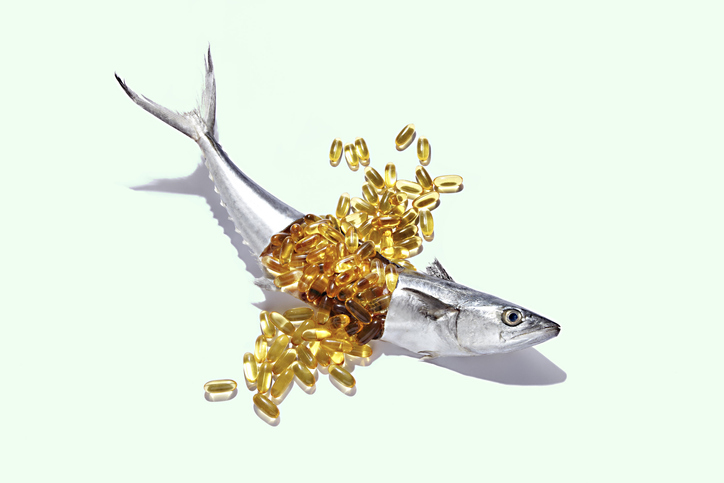Cod Liver, Fish, Krill, Algal & Flaxseed Oils. Which Supplement Is Best For You?

By Joy Stephenson-Laws, J.D., Founder
If you head to the supplement aisle at your local health or grocery store, omega-3 supplements will probably be one of the first things you see.
Both the essential fatty acids omega-3 and omega-6 are essential to our health. Our bodies do not produce these fatty acids, so we have to get them from food and/or supplements. An ideal diet would have a healthy balance of omega-3 and omega-6, but the modern American diet tends to be richer in omega-6. A major source of omega-6 is found in vegetable oils (which are very popular in the American diet).
You may be taking a fish oil supplement to get those omega-3s. If you are strictly plant-based, you may be taking a non-animal based supplement to get this essential nutrient. Either way, it’s important to know exactly what you are getting and what you may even be lacking. For example, many people might think all fish oil supplements are created equally, however, it turns out there is a difference between fish liver oils, such as cod liver oil, and other fish oils.
Know the three main omega-3 fatty acids.
“The three main omega-3 fatty acids are alpha-linolenic acid (ALA), eicosapentaenoic acid (EPA), and docosahexaenoic acid (DHA). ALA is found mainly in plant oils such as flaxseed, soybean, and canola oils. DHA and EPA are found in fish and other seafood,” according to the National Institutes of Health’s Office of Dietary Supplements.
- Fish oil. Derived from fatty, oily fish such as salmon, mackerel, trout and sardines. Fish oil contains both EPA and DHA.
- Cod liver oil. Yes, cod liver oil comes from the livers of cod fishes (fish oils are extracted from the tissue of the fish). Cod liver also contains EPA and DHA in addition to vitamins A and D. Keep in mind that cod is a very lean fish, so cod liver oil contains less omega-3s than regular fish oil capsues. (As you can see, it really depends on personal needs as to whether one should take fish oil or cod liver oil).
- Krill oil. Also has EPA and DHA. I have previously blogged about this supplement.
- Algal oil. Comes from marine algae. It is a plant-based source of DHA. Some but not all algal oils contain EPA.
- Flaxseed oil. Contains ALA.
Clearly, all of these supplements have different nutrient profiles. It is also good to get quality supplements, know exactly what your nutritional needs are by taking routine nutrient tests and consult with a competent healthcare professional so that you know exactly what to take.
If you are plant-based, it is especially important to make sure you are not deficient in any of the three main omega-3 fatty acids. Fatty fish is really the most abundant source of EPA and DHA.

For me, the biggest concern is whether it is better to take cod liver oil or fish oil. Of course, as I suspected, it depends. The thing to be especially aware of when it comes to cod liver oil is that it may contain an excessive amount of vitamin A and quite a substantial amount of vitamin D. So if you are taking other supplements that contain these nutrients or not someone who needs more of these vitamins, it could be detrimental to your health. It is possible to overdose on supplements. Also remember that fish oils generally have more omega-3s so, again, you really have to know what your personal needs are.
Some people even take prescription fish oils, but this is only advised per the recommendation of a competent healthcare professional. I cannot stress enough that with any supplement use, you always want to seek proper medical guidance.
I think one of the biggest takeaways is that so many Americans are consuming way more omega-6s than omega-3s, and this is really not a good thing. Although omega-6 is an essential fatty acid as well, we are consuming way too much of it because we consume a lot of vegetable oils.
Are you reducing inflammation or promoting it?“A healthy diet contains a balance of omega-3 and omega-6 fatty acids. Omega-3 fatty acids help reduce inflammation, and some omega-6 fatty acids tend to promote inflammation. In fact, some studies suggest that elevated intakes of omega-6 fatty acids may play a role in complex regional pain syndrome. The typical American diet tends to contain 14 to 25 times more omega-6 fatty acids than omega-3 fatty acids,” according to Mount Sinai.
So although I am a huge proponent of taking quality supplements with the guidance of a competent healthcare professional, there is not one supplement out there that will cancel out the effects of a poor diet. It is a good idea to eliminate or significantly cut back on processed and fast foods which usually contain omega-6 heavy canola oil. Cook at home instead with olive and avocado oils.
I know navigating the world of supplements can be overwhelming because there are so many options and they are all readily available, but rely on your resources such as your professional health care advisor. I also know that Designs for Health makes very high quality supplements. You can check out their omega-3s supplement here. I trust their products since it is science based.
Enjoy your healthy life!
Disclaimer: This article is not intended to provide medical advice. Please consult with your doctor or another competent healthcare practitioner to get specific medical advice for your situation.
The pH professional health care team includes recognized experts from a variety of health care and related disciplines, including physicians, attorneys, nutritionists, nurses, and certified fitness instructors. This team also includes the members of the pH Medical Advisory Board, which constantly monitors all pH programs, products, and services. To learn more about the pH Medical Advisory Board, click here.



